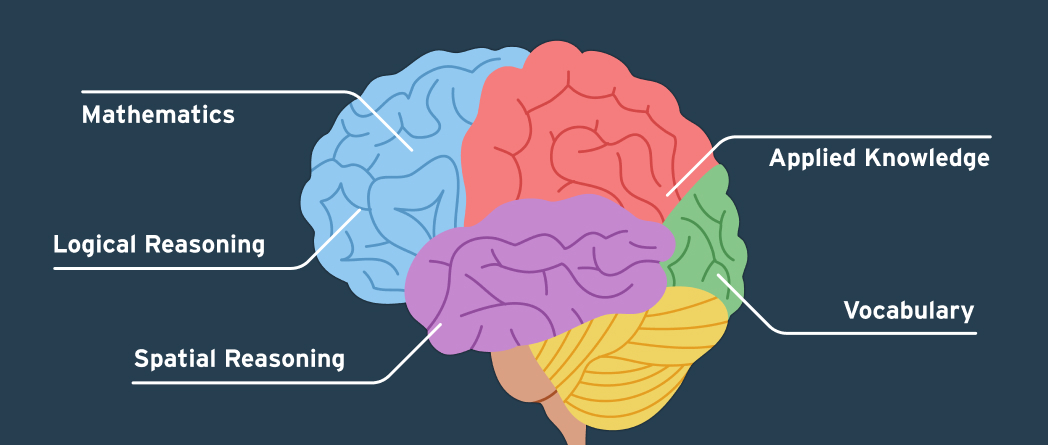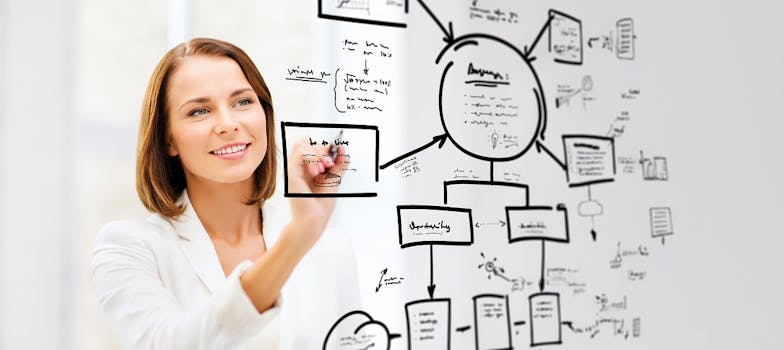What if we told you that the key to handling challenges at work wasn’t about chasing abilities you don’t have, but cultivating the ones you already do? The complexity of today’s job market and our ever-evolving roles can often leave you feeling like you don’t have the right tools to handle the daily demands you face. It’s as if you turn your head for a moment and suddenly there’s a new tool or platform you need to master in order to stay in control. That pressure can leave you destabilized and unsure how best to navigate the day-to-day hurdles of your role, let alone map out the long-term career you want.
Handily, many workplace challenges boil down to the same core abilities, no matter your industry or ambition. Much of your professional life requires you to influence others, analyze data, make decisions, and apply knowledge from our lives to different situations. These are all skills that you already have, even if you don’t always recognize them, because they belong to your core set of cognitive abilities.
Each one helps you handle the everyday pressures of work with confidence. The key is learning to understand their strengths, see how they connect to the challenges you face, and adapt them to situations as they arise.
What are your key cognitive abilities?
Generally speaking, there are five recognized core cognitive abilities, and although titles may sometimes vary, they all refer to the same fundamental skills. Pattern recognition/spatial reasoning, and logical reasoning are—broadly speaking—abilities related to analytical thinking. They help you spot trends, anticipate next steps, think ahead, and make clear decisions.
Verbal reasoning covers your communication and comprehension. It’s all about how you interpret text and ideas and how effectively you can absorb and share information in written and spoken form.
Finally, applied knowledge and mathematics assess your wider problem-solving abilities in different contexts. They show how well you can take what you know and use it in practical ways, like solving new challenges, analyzing data, or managing tasks effectively.
Each of these key abilities is crucial when it comes to managing challenges in the workplace, as they give you the tools to think clearly, solve problems, and make confident decisions every day.

Communicate your ideas clearly: verbal reasoning
We’ve all been in situations where it’s hard to get our point across. Maybe you don’t enjoy speaking up in meetings, or you find it difficult to find the right words in a professional setting. You might even work in international environments that require you to communicate across different languages and cultures. In busy, fast-moving workplaces, it’s easy for messages to get lost or misunderstood if they aren’t structured clearly.
Verbal reasoning helps you make sense of information, organize your thoughts, and present ideas in a way that’s logical, persuasive, and easy for others to follow. It’s the skill that lets you take complicated concepts and explain them, so people actually understand, making it more likely your ideas have impact.
Using verbal reasoning at work means thinking through your points before you speak or write, breaking ideas into clear steps, and highlighting the most important information. It comes into play in all sorts of situations, such as copy writing, marketing, leading discussions, negotiating with colleagues or clients, and coordinating work across teams.
By learning to optimize your verbal reasoning abilities, you’re more likely to get your ideas seen, heard, and understood, making your day-to-day work life feel much less challenging.
Tips for improving your verbal reasoning: Practice summarizing ideas. After reading an article or when you finish a meeting, try explaining the main points in just a few sentences, either out loud to yourself or in writing. This trains your brain to identify the most important information, structure your thoughts and then communicate them.
Spot opportunities and trends: pattern recognition/spatial reasoning
At first glance, pattern recognition and spatial reasoning might not seem useful in every profession. It’s easy to see the benefits for designers or computer programmers, but if you work in a different field, you might think they have limited use. In reality though, they have a direct impact on your work, no matter your career.
Pattern recognition and spatial reasoning help you spot connections and see how different pieces of a whole task or project fit together, even if you’re not an expert in each individual part. They make it easier to make sense of complex situations and help you figure out what might happen next.
Using these abilities at work might look like spotting potential problems in a product before it’s launched, noticing slow or outdated parts of a workflow and figuring out how to fix them, finding patterns in sales figures, or mapping out how different tasks and roles fit together to keep a project running smoothly.
Honing these cognitive abilities helps you spot opportunities and stay ahead of potential problems. It also gives you the ability to see the bigger picture and understand how all the pieces fit together.
Tips for improving pattern recognition/spatial reasoning: Choose a workflow or project you deal with regularly and create a visual map of it, like a flowchart or a diagram. For example, if you’re managing a new hire onboarding process, map out each step from start to finish. Doing this will help you notice clear patterns, like tasks that could be combined, or areas that are not covered in enough detail. Practicing this visual technique regularly trains your brain to spot links and patterns more quickly.
Make confident decisions under pressure: logical reasoning
A common challenge in the workplace is making complex decisions under pressure. While many of us are used to high-pressure situations in our personal lives—like parenting, maintaining relationships, or even hobbies such as extreme sports—making decisions in our professional lives often requires a different set of skills.
You need to be able to process information, weigh your options, and make decisions quickly. All while relying on professional instincts and behaviors that don’t always come as naturally as your personal ones. This is where cognitive abilities like logical reasoning become invaluable. Logical reasoning is the ability to think through information in a clear, structured way so you can reach sound conclusions instead of reacting with emotion or guesswork. Building this skill gives your professional instincts a stronger foundation, so you can stay focused on the work instead of second-guessing yourself in moments of pressure.
Tips for improving logical reasoning: When faced with a choice, jot down your two or three best options. Create a pros and cons list for each, then set a ten-minute timer and make a decision based on your analysis. Over time, this practice trains you to slow down knee-jerk reactions and rely more on clear, structured thinking. For example, if you’re deciding between two suppliers, listing out cost, reliability, and delivery times side by side can make the best option much clearer, rather than just staying with the supplier you’ve always used or the one you personally like the best.
Apply your wider knowledge effectively at work: applied knowledge
Applied knowledge is perhaps the most unique of all the cognitive abilities, because it requires you to come at life slightly sideways. Whereas mathematics and logical reasoning have clear rules and formulas, applied knowledge is about taking what you already know and using it in new ways. It’s the ability to connect your past experiences with challenges happening in the moment, requiring you to adapt on the spot.
At work, applied knowledge can look different for everyone, because it’s an accumulation of your life experience, which is always totally individual. It also has different practical applications depending on your field. You may find that years of playing Sunday afternoon football helps you navigate a complicated team or motivate your colleagues. Or, managing your family’s budget means you’re now a wizard at project management and prioritizing resources. Even hobbies or volunteer work you have done throughout your life can give you insights and abilities that translate directly into smarter decisions on the job.
The trick is learning not to dismiss what you know as irrelevant or unimportant. Honing your applied knowledge skills gives you the confidence to draw on your personal experience at work so you can face challenges without feeling overwhelmed. After all, expertise is just time, experience, and the confidence to use it.
Tip for improving applied knowledge: After finishing a task or project, take a few minutes to reflect on what worked, what didn’t, and why. Make a note of where you ran into trouble and which abilities helped you solve it. Then trace those abilities back. How many came from formal training, and how many from your wider life experience? This keeps you aware of all the value you bring to the job beyond your resume. Over time, this habit helps you turn everyday experiences into a set of hard abilities you have the confidence to lean on in a crisis.

Use numbers to drive results: mathematics
It’s fair to say that mathematics isn’t everyone’s cup of tea. In fact, a recent report found that, on average across OECD countries, 18% of adults lack even the most basic math abilities. The thing is, when it comes to challenges at work, it probably doesn’t surprise you how often it’s needed, no matter what field you work in. Whether it’s counting change, working with spreadsheets, or organizing stock, mathematics is always with us, so it’s worth investing time and effort into levelling up your abilities.
The good news is that most workplace math doesn’t require advanced equations. What really matters is feeling confident with the basics, like addition, subtraction, percentages, and simple formulas. With those tools, you can use data to solve many challenges you may come across, such as spot patterns, like which products sell best, or which tasks take the most time. Or you can track your own progress to see what’s working, and back up decisions with evidence instead of just gut feeling. In this way, math becomes less about tricky school exercises and more about a practical skill that helps you solve challenges, get results, and stand out in your role.
Tips for improving mathematics: The simplest way to level up your relevant mathematics abilities is to practice with real-life numbers instead of abstract problems. For example, track your weekly spending or calculate discounts while shopping. By applying math to things you already do every day, you build confidence and see how useful it really is.
Unlock your potential at work
At their core, cognitive abilities are life abilities. Once you recognize how timeless and vital they are, you stop feeling thrown off by every new tool or demand and instead feel equipped to handle new or difficult situations at work with confidence. Nearly every workplace challenge can be met with these abilities, and each one offers its own strengths and a unique way to solve problems.
The goal isn’t to be perfect in every area, but to understand your strengths and lean into them. When you know how to apply the abilities you already have—and strengthen the ones you need most—you create a clearer path to a challenge-free work life.
To find out which cognitive abilities are your strongest and where you can grow, take our cognitive ability test today on TerraYou.



